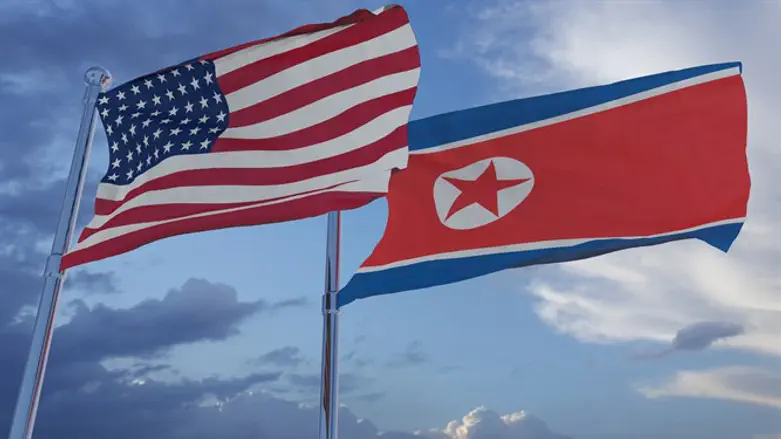
The United States on Thursday imposed a new round of sanctions on North Korea, blacklisting individuals and organizations involved in security and forced labor policies for "ongoing and serious human rights abuses," AFP reported.
Amid the ongoing standoff over Pyongyang's threatening nuclear posture towards Japan and the United States, the U.S. Treasury sought to boost pressure by placing the financial restrictions on seven senior officials and three state units.
The move came as the State Department released its "Report on Serious Human Rights Abuses and Censorship in North Korea" which details allegations of a national forced labor system and the government's confiscation of the wages of North Koreans sent abroad as contract labor.
"Human rights abuses by DPRK regime remain among the worst in the world, including those involving extrajudicial killings, forced labor, torture, prolonged arbitrary detention, as well as rape, forced abortions, and other sexual violence inside the country," said State Department Spokeswoman Heather Nauert, as quoted by AFP.
"Many of the country's human rights abuses underwrite the regime's weapons program," she added.
Thursday's sanctions included the Military Security Command and its director and deputy director, described as "the military's secret police" that investigates political crimes in the armed forces.
Also targeted were Minister of Labor Jong Yong Su, the External Construction Bureau and the Ch'olhyo'n Overseas Construction Company, for their roles in forced labor and foreign labor contracting deals.
Also listed for sanctions were the first vice minister of the Ministry of People's Security, the North Korean Consul General in Shenyang, China, and a diplomat in the country's embassy in Vietnam.
The two diplomats who were sanctioned, the U.S. said, have participated in the forced repatriation of North Koreans seeking political asylum in other countries.
The sanctions came a day after senior North Korean official Ri Yong Pil warned the U.S. to take Pyongyang's threat of setting off a hydrogen bomb "literally".
North Korea "has always brought its words into action," Ri told CNN.
His was referring to comments made last month by North Korean Foreign Minister Ri Yong Ho during a visit to New York for the United Nations General Assembly. At the time, the foreign minister raised the possibility that North Korea could test a powerful hydrogen bomb over the Pacific Ocean.
North Korea carried out the strongest of its six-ever nuclear tests in early September, claiming to have used a hydrogen bomb.
The UN responded to the test by imposing fresh sanctions on the rogue state.
North Korea's continued threats have put its neighbors in the Pacific on high alert. In September, Pyongyang flew a ballistic missile over Japan. When North Korea it carried out its sixth nuclear test, it claimed to have detonated a hydrogen bomb that could fit atop a ballistic missile.
During the back-and-forth barbs with Washington, Pyongyang at one point threatened to fire missiles into the waters off the U.S. Pacific territory of Guam.
The U.S. Treasury also imposed sanctions on North Korea in late September, targeting eight North Korean banks and 26 executives.